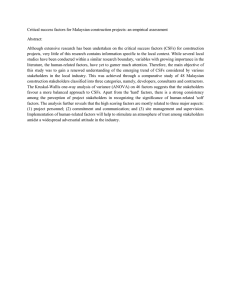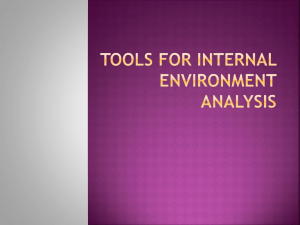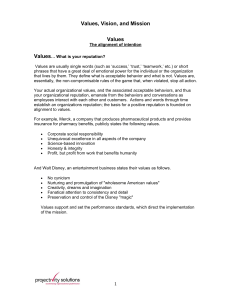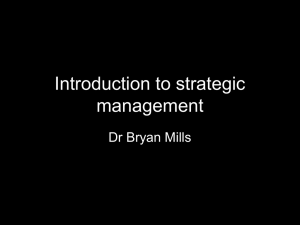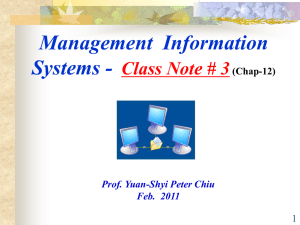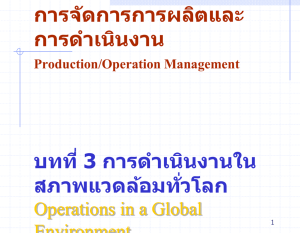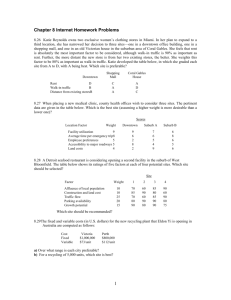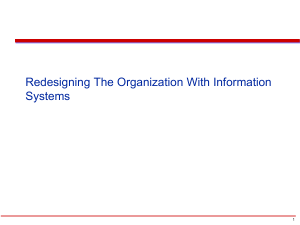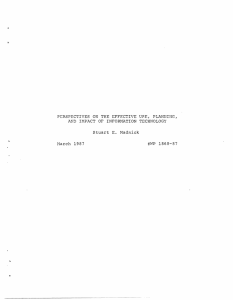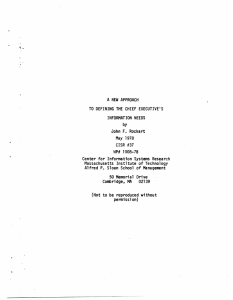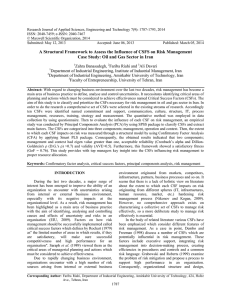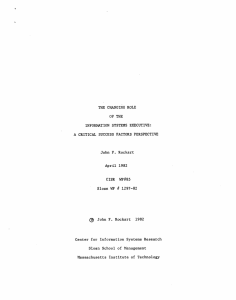Mullins Chapter 7
advertisement
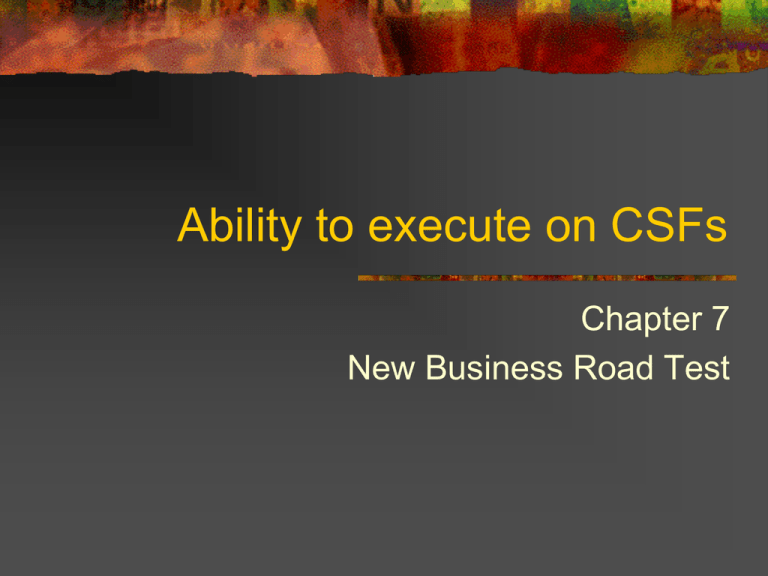
Ability to execute on CSFs Chapter 7 New Business Road Test The 7 domains of attractive opportunities Market domain Industry domain Market attractiveness Macrolevel Industry attractiveness Team domain: •Mission •Ability Microlevel Refresher •Connectedness Target segment benefits and attractiveness Sustainable advantage Entrepreneurs must be able to: Identify the critical success factors (CSFs) specific to their particular industry Assemble a team that can execute on these factors Two key questions to ask to identify your industry CSFs Which few decisions or activities are the ones that, if gotten wrong, will almost always have severely negative effects on company performance? Which decisions or activities, done right, will almost always deliver disproportionately positive effects on performance? A CSF for retailing: Location Starbucks’ process of site selection was enormously time consuming. One real-estate error represented a $500K mistake Starbucks closed only 2 of the first 1,000 stores it opened 3 high-tech CSFs for customer needs Anticipating and understanding customers’ real problems or needs Understanding deeply an area of technology and what it can and cannot deliver, both today and tomorrow Finding ways to harness the technology to resolve these problems or needs. Can the customer’s pain be relieved? 3 broad strategic approaches in mature manufacturing industries Operational excellence: lead the industry in price and convenience (Wal-Mart) Customer intimacy: focused on individualized service to each customer (Harrah’s) Product leadership: provide a continuing flow of state-of-the art products or services to stay at the industry’s cutting edge (Palm) Treacy & Wiersema, 1993 CSFs for manufacturing strategies Operational excellence Minimize all costs Optimize business processes for extreme efficiency and effectiveness CSFs for manufacturing strategies Customer intimacy Gather detailed information about each customer to assign them to a micro-segment; tailor the offering specifically to that segment’s needs Segmentation can be so precise that an offering may be tailored to a micro-segment of one CSFs for manufacturing strategies Product leadership Creativity, to recognize and embrace ideas that may originate outside the company Optimize business processes for speed to bring these ideas to market quickly Relentlessly pursue new solutions that may obsolete those that the company has just introduced. CSFs for manufacturing strategies Effective, efficient value-chain relationships From suppliers, manufacturers need reliability, quality, and on-time delivery at an affordable price From resellers, they need a commitment and sell-through – a commitment that a manufacturer wins be being a reliable supplier of quality products itself Investors want to know that: The lead entrepreneur has identified and embraced the CSFs in the industry they propose to enter, as well as the market and competitive environments they will encounter The lead entrepreneur has assembled a team that can demonstrate in past deeds that it can execute on every CSF Palm Computing (then…) Palm Computing (…and now) Jeff Hawkins Late 1980s: GRiD Systems – 4.5-pound pen/tablet computer for $2500 1993: Palm’s Zoomer – heavy and cumbersome handheld device for $700 sold 20,000 units in first two months 1996: Palm Pilot 1000 – fast, easy to use organizer for $149 sold 1 million units in 18 months Palm’s CSFs What did the customers really need? Palm’s competition was paper, not computers What could (and couldn’t) technology deliver? Graffiti, screen space solutions Harnessing technology? Design discipline and better operating system ensured simple features and design Palm’s execution on the CSFs Understanding customers’ real needs: Focused on small and simple product. Understanding deeply an area of technology: Hawkins resolved handwriting recognition with Graffiti Finding ways to harness technology to meet customers’ needs: Passion about the look and feel of the Pilot prevented compromises
